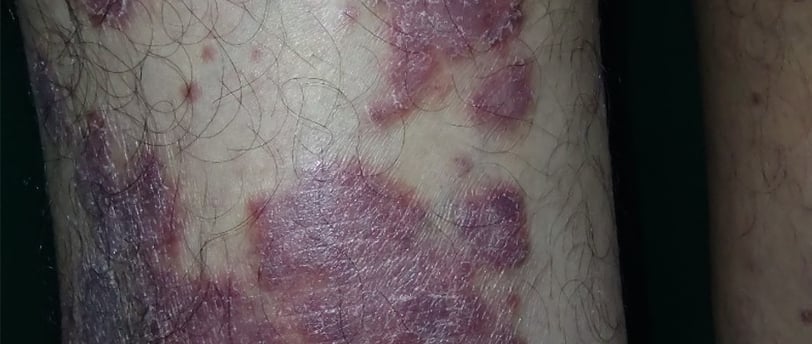What should you know about psoriasis?
Dr Senkadhir Vendhan, M.D Dermatology, IADVL Obs Aesthetic Dermatology, DMO, Southern Railways HQ Hospital.
11/28/20242 min read


What Should You Know About Psoriasis?
Psoriasis is a common, chronic skin condition that can affect anyone, presenting unique challenges for both patients and healthcare providers.
What is Psoriasis?
Psoriasis is a inflammatory skin disease caused by an overactive immune system. It speeds up the skin cell cycle, leading to the buildup of scaly, red patches on the skin. Psoriasis can appear in several forms, including:
Plaque psoriasis (most common): Red patches covered with silvery scales.
Guttate psoriasis: Small, droplet-like spots often triggered by infections.
Flexural (inverse) psoriasis: Shiny, red areas in skin folds.
Pustular psoriasis: White pustules surrounded by red skin.
Erythrodermic psoriasis: Severe redness and scaling over large body areas, often life-threatening.
Why Does It Happen?
The exact cause of psoriasis isn’t fully understood, but it results from a combination of genetic and environmental factors. Triggers may include:
Stress
Infections (like strep throat)
Certain medications (e.g., beta-blockers, lithium)
Skin injuries (known as the Koebner phenomenon)
Lifestyle factors like smoking and alcohol use
Psoriasis often runs in families, with genetic studies showing a strong hereditary link.
Who is Affected?
Psoriasis affects about 2% of the world's population, with no gender preference. It can develop at any age but typically begins between the ages of 15–35 or later in life around 50–60 years. It’s more common in Caucasians but less prevalent in some Asian and African populations.
Beyond the Skin
Psoriasis isn't just a skin disease; it has systemic implications. Common comorbidities include:
Psoriatic arthritis (joint pain and swelling)
Cardiovascular diseases (increased risk)
Metabolic syndrome (diabetes, obesity, high cholesterol)
Mental health disorders (anxiety, depression, and low self-esteem)
Holistic management is crucial for overall well-being.
Symptoms to Watch For
Skin: Well-defined red patches covered with silvery-white scales.
Nails: Pitting, thickening, discoloration, or separation from the nail bed.
Scalp: Flaky patches resembling dandruff but more persistent.
Joints: Stiffness, swelling, or tenderness, which might indicate psoriatic arthritis.
Diagnosis
Psoriasis is primarily diagnosed through clinical examination. In complex cases, a skin biopsy or dermoscopy may be needed to rule out other conditions like eczema or fungal infections.
How is Psoriasis Treated?
Treatment depends on severity and individual needs. Options include:
Topical Therapies: For mild to moderate cases
Corticosteroids
Vitamin D analogs (e.g., calcipotriol)
Salicylic acid and coal tar
Phototherapy: Using ultraviolet (UV) light to slow skin cell growth. Options include:
Narrowband UVB (NB-UVB): Common and effective.
PUVA therapy: Combines UVA light with psoralen (a photosensitizer).
Systemic Treatments: For moderate to severe cases
Traditional drugs: Methotrexate, cyclosporine, and acitretin.
Biologics: Target specific immune pathways (e.g., adalimumab, secukinumab, Ixekizumab and guselkumab).
Small molecule drugs: Apremilast and deucravacitinib
Can It Be Cured?
Treatments can control symptoms effectively, allowing patients to lead fulfilling lives. Long-term management focuses on preventing flare-ups and addressing comorbidities.
Living with Psoriasis
Psoriasis impacts more than skin:
Social and Emotional Effects: Many patients struggle with visible plaques and feel stigmatized, leading to isolation or depression. Counseling or support groups can help.
Lifestyle Changes: Regular exercise, a balanced diet, avoiding smoking, and limiting alcohol can improve symptoms and reduce associated risks like heart disease.
Why See a Doctor?
Early diagnosis and treatment can:
Prevent severe flares.
Manage complications like psoriatic arthritis.
Improve overall quality of life.
The Takeaway
Psoriasis is more than a cosmetic concern—it’s a complex, systemic disease requiring a comprehensive care approach. Understanding the condition, staying informed about treatment options, and seeking regular medical care are key steps toward managing psoriasis effectively.
